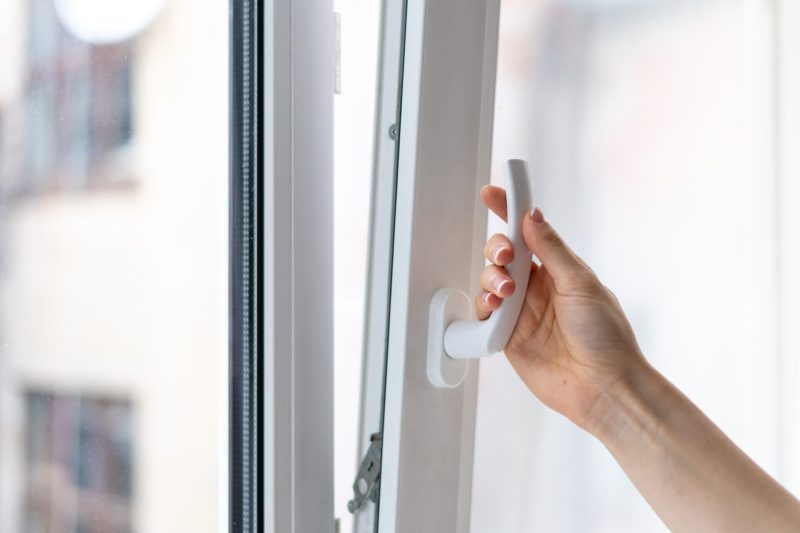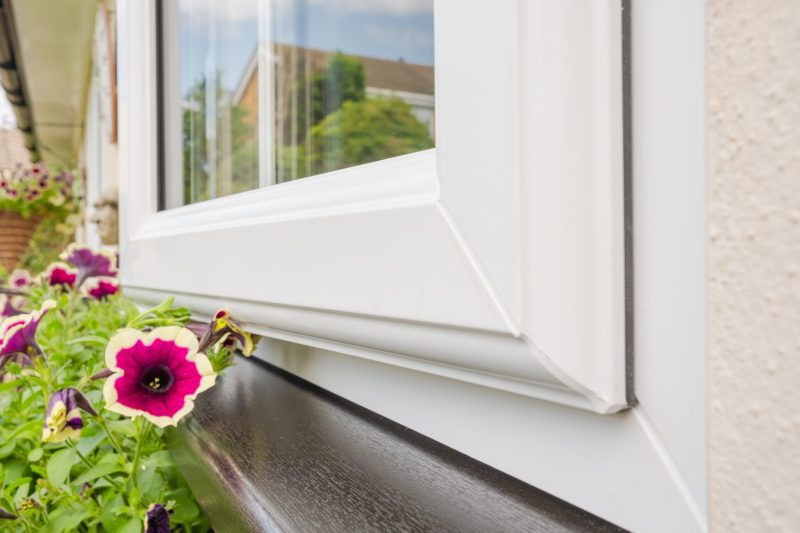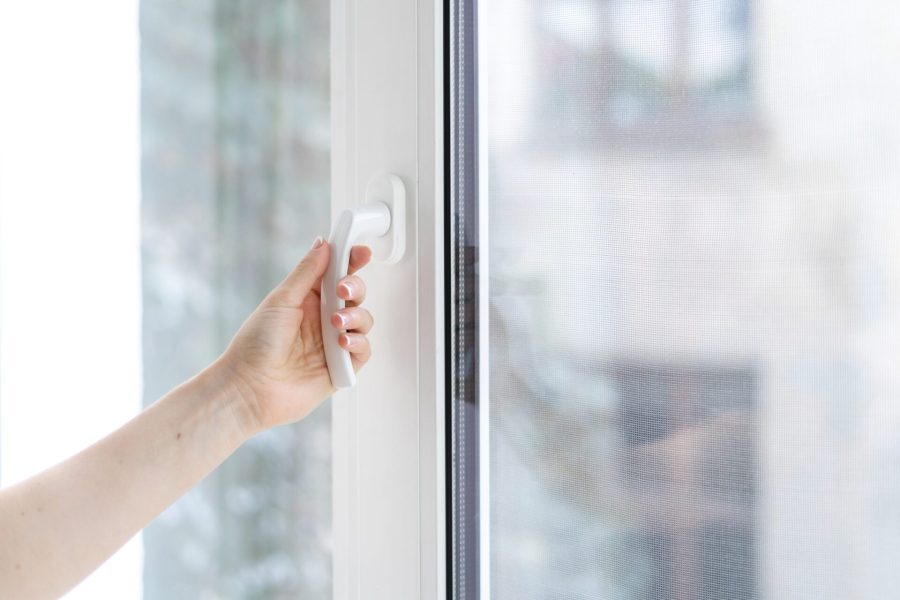When you are looking to upgrade your home, it is important to give due consideration to your choice of windows. Windows can influence the comfort of your living environment as well as affecting heat levels, energy bills, noise reduction, and security. Single glazed windows are increasingly being replaced with its more durable counterpart, double glazing.
Is double glazing truly more beneficial than single glazing though? We’ll be breaking down the advantages and disadvantages of both types of glass so you can see which one will be best for your home. The glass you use in your house is essential when it comes to managing the above factors and if you’re deciding between single and double glazed you need to know the differences and benefits of both to make an informed decision.
What is the difference between single glazed and double glazed windows?
A single glazed window is made using one single pane of glass, meaning that the only thing separating the inside of your home from the outdoor environment is that pane of glass. Normal window glass for single glazed windows ranges from 3mm to 10mm, which won’t provide you with suitable insulation. It has been proven that a single glazed window can be up to 20 times less efficient than an insulated wall when it comes to energy loss or storage.
Double glazed windows on the other hand, are manufactured using two different pieces of glass separated by a vacuum. The vacuum layer functions as an insulative barrier and the glass itself can be laminated or UV tinted but is otherwise fairly similar to the glass that is used in single glazed windows.
In cases when double glazing is retrofitted to an existing window installation, the thermal efficiency can be increased by up to 80%. Double glazed windows that are factory made can be up to 100% more efficient than a single glazed equivalent.

What are the advantages of single glazed windows?
- If you are on a strict budget to replace your windows, in terms of cost single glazing is the cheaper and better option.
- If you live in a warmer area that does not experience weather that is too cold or aggressive, heat retention and weatherproofing might not be as big of a concern to you. This means you may be able to manage reasonably well with single glazing.
What are the disadvantages of single glazing?
- In terms of insulation abilities, single glazing is not as effective as double glazing, meaning more heat will escape through the windows. This will not only leave you with a colder home during the winter but also result in big increases in your energy bills.
- Noise can travel more easily through single glazed windows as it is considerably thinner than double glazed. So, if you live in a busy urban area you might struggle to get any peace and quiet in your home with single glazed windows.
- Windows with single glazing are not as secure as double glazed windows, making them more vulnerable and easier to break for thieves wanting to gain access to your property.
- Single glazed windows have become practically synonymous with condensation. Essentially this means that there is nothing preventing the glass from getting cold on the inside in winter. The cold surface pulls moisture out of your home’s warm air which condenses on the pane of the window. The result of this is very cloudy windows and possibly even pools of water gathered on the windowsill.
What are the advantages of double glazing?
- The main advantage of double glazed windows is its ability for heat retention and insulation. The layer of insulative air that is trapped between the two panes of glass helps to reduce heat loss as it acts as a barrier that keeps in warm air.
- Double glazing can save you a significant amount of money on your energy bills as a result of the increase in the thermal efficiency of your home. Less energy output will be required to heat your home up, leading to lower bills.
- There will be limited condensation with double glazing as the insulative layer of gas or air between the glass panes prevents condensation by stopping the build up of moisture caused by cold weather. The efficient seals on double glazed windows further enhance this effect.
- The added thickness of double glazing provides improved noise reduction, making it a must have if you live on a loud street. Roadworks and the sound of traffic will be blocked out significantly better with double glazing than single glazing.
- Your home will feel much safer and more secure with double glazed windows. They are a lot tougher than their single counterparts, meaning it is more difficult for potential criminals to break into your property.
- There will be an aesthetic appeal as double glazed windows look exactly the same as single glazed ones. This means that if you just want to replace one or two windows with double glazing you can easily do so without them looking mismatched to your other windows. They will look the same as your single glazed ones and the double glazing is not visible from the outer side, so they are visually pleasing.
What are the disadvantages of double glazing?
- Double glazing is more expensive than single glazing when it comes to the initial investment, but the benefits you will experience long term make it worth that extra upfront cost.
- Repairs are not as simple for double glazed windows due to the extra feature of an insulative space between the panes of glass. As a result, if the windows become damaged or non-functional, they might need to be replaced completely. It is important that you work with a professional, experienced, and reputable glazing company who can offer a high-quality installation, repair, and replacement if needed when damage occurs.
- Some people have stated that double glazing in fact doesn’t do much more to block out external noise than single glazing.
- Even though there will be less condensation with double glazing than single you still may find your double glazed windows have some condensation. As previously mentioned the insulative gap stops the internal windowpane from getting cold. However, if the seal around the panes breaks down, moisture can get through inside that gap, creating condensation in between the panes. For a lot of homeowners this is even more frustrating than condensation on single glazing because you can’t just wipe it off.

Should you switch from single glazed windows to double glazed?
There are many advantages to double glazed windows and in many cases converting to double glazed from single is the right decision. However, if you live in a heritage property, changing to double glazing could mean little character is retained from the style of your home. There are a large number of homes across the UK that are fortunate enough to have original wooden windows. In the majority of cases, these windows can’t be fitted with double glazing because the gap in the frame just isn’t big enough.
Homeowners in this situation who want to convert their single glazed windows to double glazing would have to replace their whole window with something that is not authentic. By doing this, their home’s heritage can be impaired and the property itself could be devalued. Also, it can be damaging to the environment as it means the existing windows would need to be sent to landfill.
Are there any alternatives to double glazing?
Thankfully, switching single glazed windows to double glazed is not the only way to improve efficiency. An effective and high performing alternative to double glazed windows, which can be fitted on existing windows, is secondary glazing. It works by adding a subtle independent windowpane to the inside of existing windows. This approach can be more effective in some cases than a full single glazed to double glazed conversion.
The bigger gap between the two panes makes secondary glazing better at blocking out external noise for example. This makes for more peaceful nights, less disruption throughout the day, and an overall more pleasant home environment. It can also be used to reduce condensation on single or double glazed units and with modern methods of production, there is nothing preventing secondary glazing from exceeding the heat retention levels of double glazing.
The best part of this is there is no need to replace the actual windows. Homeowners can maintain their heritage windows fully whilst getting better heat retention, reducing noise, improving security, and dispelling condensation.
What is the best option for you?
When it comes down to choosing between single glazed and double glazed windows generally double glazed will be the best option. Even with the alternative option of having secondary glazing put in place, in most cases switching to double glazing is the preferred choice. Upgrading single glazed windows to double glazed is the most popular solution in the UK and it is no surprise as to why.
Double glazed windows are significantly more efficient in performance and security than single glazed windows and will be a worthwhile long-term investment that you won’t have to think of replacing again for many years to come.
 " alt="Single Glazed vs Double Glazed
" alt="Single Glazed vs Double Glazed